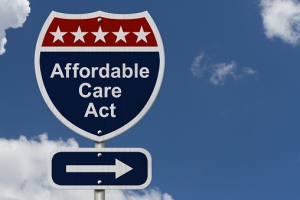Producers
Last December, a federal judge in Texas District Court ruled that the Affordable Care Act (ACA) was unconstitutional. The decision came in response to a lawsuit filed by 20 Republican state attorneys general. These attorneys general argued that the ACA was unconstitutional because there is no longer a penalty associated with the Individual Mandate, and the judge agreed.
Last year, the Trump administration issued new regulations relating to Association Health Plans (AHPs). The primary intent of the regulations was to allow small employers to more easily band together to purchase health insurance coverage. The regulations not only allowed for AHPs to be established by employers in the same industry, but the regulations also allowed AHPs to be established by employers in a similar geographic location (e.g. city, state, metropolitan area).
Each year, the Centers for Medicare and Medicaid Services (CMS) adjusts the cost sharing limits for the standard Medicare Part D plan. Earlier this month, CMS announced the adjustments for 2020. Below is a summary of the adjustments for next year:
The Internal Revenue Service (IRS) is continuing to send Letter 226J to employers for which the agency believes an Employer Mandate penalty is due. Currently, these notices are being sent to employers for penalties that apply to the 2016 calendar year.
Last year, the Department of Labor (DOL) issued new regulations pertaining to Association Health Plans (AHPs). The rules relaxed previously issued regulations by allowing AHPs to be established for employers who are in the same industry or geographic location. AHPs are regulated like large group health plans which are exempt from some of the Affordable Care Act (ACA) market reforms, including the requirement to cover essential health benefits.
There’s never a dull moment when it comes to the Affordable Care Act (ACA). Some people love the law, some people hate it, and others find themselves somewhere in between. However, there’s one thing that’s for certain. The rules are constantly being challenged or changed. Here are three key developments that occurred last week.
Simple Cafeteria Plans were created by the Affordable Care Act (ACA) and have been an option for eligible employers since 2011. This type of plan provides eligible employers with an automatic pass for many of the non-discrimination tests that apply to Cafeteria Plans and its component benefits. This is the primary difference between a Simple Cafeteria Plan and other more traditional Cafeteria Plans.
That flu shot you're providing to employees. Are you offering it as a benefit to COBRA beneficiaries? Because you should be.
While COBRA is conceptually easy to understand, it is tactically more challenging to administer. Many employers are unaware that certain benefits are subject to COBRA. On the other hand, some employers are offering COBRA in situations which they don't have to because of a misunderstanding of the law.
There are some big changes coming to Medicare Supplement plans in 2020. Plans C, F and High Deductible F will no longer be available for new Medicare enrollees.
In other words, if you become eligible for Medicare on or after January 1, 2020, you won’t be able to enroll in Plans C, F or High Deductible Plan F. However, if you are already enrolled in one of these plans, you’ll be grandfathered into that coverage and can keep that plan in place indefinitely.
Health Savings Accounts (HSAs) have seen tremendous growth in the past decade and are quickly becoming one of the most popular employee benefits. These accounts allow individuals who are enrolled in a Qualified High Deductible Health Plan to use tax-free dollars to pay for out-of-pocket healthcare expenses for themselves and their families.
Benefits Buzz
Enter Your Email









